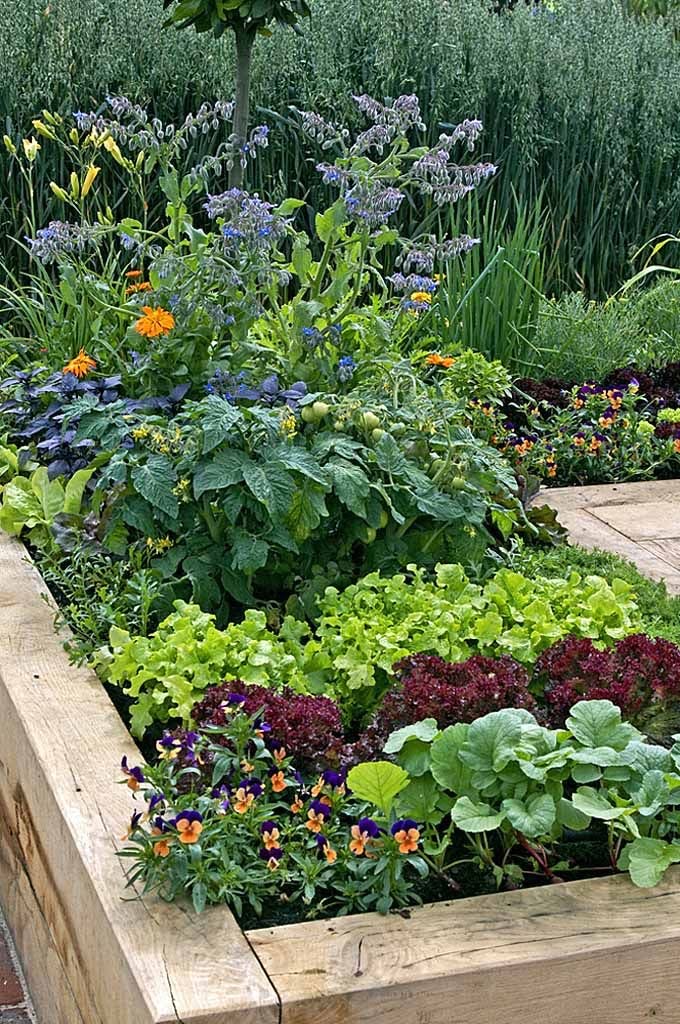Organic fertilizer for vegetable gardens is an essential component of maintaining a healthy and thriving garden. Understanding the benefits of organic fertilizers and how to properly utilize them can lead to bountiful harvests of fresh, nutrient-rich produce.
Organic fertilizers are derived from natural sources such as compost, animal manure, and plant materials, and provide a range of benefits for vegetable gardens. They help improve soil structure, enhance microbial activity, and promote long-term fertility without harming the environment or the plants themselves.
In this article, we will delve into the world of organic fertilizers for vegetable gardens, exploring the different types available, understanding the specific nutrient requirements of various vegetables, best practices for application, natural alternatives to chemical fertilizers, and maintenance tips. Let’s uncover how organic fertilizers can play a vital role in cultivating vibrant and nourishing vegetable gardens.
Types of Organic Fertilizers
Organic fertilizers come in various forms and play a crucial role in vegetable gardening. From compost to animal manure, there are several types of organic fertilizers that cater to the specific needs of different vegetables. One popular option is fish emulsion, which is high in nitrogen and great for leafy greens like lettuce and spinach. Another common choice is bone meal, rich in phosphorus and ideal for root vegetables such as carrots and potatoes.
When choosing the right organic fertilizer for your vegetable garden, it’s essential to consider the nutrient requirements of the specific plants you’re growing. For example, tomatoes require a good amount of potassium for fruit development, so a fertilizer high in potassium, such as wood ash or kelp meal, would be beneficial. Understanding these nutrient needs will help you make an informed decision when selecting organic fertilizers for your garden.
In addition to traditional organic fertilizers, gardeners can also create DIY options at home using ingredients like eggshells, coffee grounds, and banana peels. These natural alternatives not only provide essential nutrients but also help reduce waste by repurposing kitchen scraps. Ultimately, the choice of organic fertilizer will depend on the unique requirements of your vegetable garden and your commitment to sustainable gardening practices.
| Organic Fertilizer Type | Vegetable Suitability |
|---|---|
| Fish Emulsion | Leafy greens like lettuce and spinach |
| Bone Meal | Root vegetables such as carrots and potatoes |
| Wood Ash or Kelp Meal | Tomatoes requiring a significant amount of potassium. |
Nutrient Requirements for Vegetable Gardens
Understanding the nutritional needs of various vegetables is crucial for maintaining a healthy and thriving vegetable garden. Different vegetables require varying levels of nutrients such as nitrogen, phosphorus, and potassium, as well as micronutrients like calcium, magnesium, and sulfur. Organic fertilizers play a key role in fulfilling these specific nutrient requirements without the use of harmful chemicals.
When it comes to organic fertilizers for vegetable gardens, it’s important to consider the nutrient content of the fertilizer to ensure it meets the needs of your specific crops. Some organic fertilizers may be higher in certain nutrients than others, so understanding the requirements of your vegetables is essential in choosing the right fertilizer. Here are some types of organic fertilizers suitable for meeting different nutrient requirements:
- Bone Meal: High in phosphorus, bone meal is excellent for promoting strong root development and flowering in vegetables such as tomatoes, peppers, and squash.
- Fish Emulsion: Rich in nitrogen and other micronutrients, fish emulsion is ideal for leafy greens like lettuce, spinach, and kale that require a steady supply of nitrogen for healthy foliage growth.
- Kelp Meal: Packed with trace minerals and growth hormones, kelp meal is beneficial for overall plant health and can be used on a wide variety of vegetables.
Organic fertilizers provide not only essential nutrients but also improve soil structure by promoting microbial activity and increasing water retention. They release nutrients slowly over time, preventing leaching and reducing the risk of nutrient runoff. By using organic fertilizers for vegetable gardens, gardeners can ensure that their crops receive the necessary nutrients while also building long-term soil fertility and sustainability.
Application of Organic Fertilizers
When it comes to applying organic fertilizer to vegetable gardens, there are some best practices that can help ensure optimal results for your plants. Here are some key tips for applying organic fertilizers effectively:
1. Proper Mixing: It’s important to properly mix your organic fertilizer with the soil in your vegetable garden. This can be done by spreading the fertilizer evenly over the soil and then using a rake or garden hoe to work it into the top few inches of soil. This will help ensure that the nutrients from the organic fertilizer are accessible to your vegetable plants’ roots.
2. Even Distribution: Once you have mixed the organic fertilizer into the soil, make sure to water your vegetable garden thoroughly. This will help distribute the nutrients more evenly throughout the soil and prevent them from being washed away by heavy rain or irrigation.
3. Timing of Application: Organic fertilizers should be applied at specific times during the growing season to maximize their effectiveness. For example, a slow-release organic fertilizer can be applied at planting time, while a liquid organic fertilizer may need to be applied more frequently throughout the growing season.
In addition to these general application tips, it’s important to follow any specific instructions provided on the packaging of your chosen organic fertilizer. By following these guidelines, you can ensure that your vegetable garden receives all the benefits of using organic fertilizers without any negative effects on plant growth or soil health.
Composting and Vermicomposting
Utilizing compost and vermicompost in vegetable gardens provides numerous benefits. Not only do they add essential nutrients to the soil, but they also improve soil structure and water retention. These organic fertilizers promote beneficial microbial activity in the soil, enhancing overall plant health and productivity. Additionally, compost and vermicompost aid in suppressing plant diseases while reducing the need for synthetic fertilizers and pesticides.
Creating compost and vermicompost at home is an affordable and sustainable way to meet the nutrient requirements of vegetable gardens. By recycling kitchen scraps, yard waste, and other organic materials, gardeners can produce their own supply of high-quality organic fertilizer.
This not only reduces waste but also eliminates the need for purchasing commercial fertilizers that may contain harmful chemicals. With proper management and care, composting and vermiculture can yield an abundant source of organic fertilizer for maintaining thriving vegetable gardens.
Natural Alternatives to Chemical Fertilizers
Exploring Natural Options
When it comes to fertilizing vegetable gardens, many gardeners are turning to natural alternatives to chemical fertilizers. Organic fertilizers offer a safer and more sustainable option for promoting the growth of vegetables without the risk of harmful chemicals seeping into the soil. Some popular natural alternatives include compost, vermicompost, and homemade organic fertilizer mixtures.
Compost is an excellent natural fertilizer that enriches the soil with essential nutrients and improves its overall structure. It is created from organic materials such as kitchen scraps, yard waste, and other biodegradable items that decompose over time.
Vermicompost, on the other hand, is produced through the process of vermicomposting, where worms are used to break down organic matter into nutrient-rich compost. These natural options provide a sustainable way to nourish vegetable gardens while minimizing the use of synthetic chemicals.
DIY Organic Fertilizers
For those who prefer a hands-on approach, making DIY organic fertilizers at home can be a rewarding endeavor. Common ingredients for homemade organic fertilizers include compost, manure, bone meal, fish emulsion, and seaweed extract. By combining these natural elements in specific ratios, gardeners can create custom-made organic fertilizer blends tailored to meet the nutrient requirements of their vegetable gardens.
Creating DIY organic fertilizers not only allows gardeners to have full control over what goes into their soil but also promotes resourcefulness and sustainability within gardening practices. Additionally, making your own organic fertilizers can be cost-effective in the long run and reduces reliance on commercially-produced chemical fertilizers.
Transitioning to Organic Fertilizer
Making the switch from chemical fertilizers to natural alternatives requires a shift in mindset and practice for many gardeners. However, as more individuals become aware of the negative impact of synthetic chemicals on the environment and human health, there has been a growing movement towards embracing organic methods of gardening. Educating oneself about the benefits of using organic fertilizer for vegetable gardens can help inspire this transition and lead to healthier and more bountiful harvests in the long term.
By exploring natural options for fertilizing vegetable gardens without harmful chemicals and learning how to make DIY organic fertilizers at home, gardeners can take positive steps towards promoting sustainability in their gardening practices while supporting healthier ecosystems.
Organic Fertilizer Maintenance
Maintaining the health of your vegetable garden with organic fertilizers is essential for ensuring optimal growth and harvest. One of the main benefits of using organic fertilizer for vegetable gardens is that it promotes soil health and improves the overall quality of the produce. However, proper maintenance practices are crucial in order to reap these benefits.
One key aspect of organic fertilizer maintenance is regular monitoring of the soil nutrients. Testing the soil for nutrient levels can help determine if any deficiencies need to be addressed through additional fertilization. It is important to keep track of the specific nutritional needs of your vegetable plants and adjust your organic fertilizer application accordingly.
Another important aspect of organic fertilizer maintenance is proper storage and handling. Organic fertilizers should be stored in a cool, dry place to prevent them from degrading or losing their efficacy. Additionally, following the instructions for application rates and methods provided on the fertilizer packaging is essential for achieving best results.
It’s also important to note that over-fertilizing with organic fertilizers can lead to nutrient imbalances and potential harm to your vegetable garden. Keeping a schedule for fertilization and adhering to recommended quantities will help prevent any issues. By maintaining a balanced approach to organic fertilizer usage, you can ensure that your vegetable garden thrives without negative side effects.
| Aspect of Maintenance | Key Considerations |
|---|---|
| Monitoring Soil Nutrients | Regular testing for nutrient levels; adjusting fertilizer application based on plant needs |
| Storage and Handling | Proper storage in a cool, dry place; following application instructions on packaging |
| Preventing Over-Fertilization |
Case Studies and Success Stories
Real-Life Examples of Thriving Vegetable Gardens
Many vegetable gardeners have seen great success after making the switch to organic fertilizers. One example is the Smith family, who noticed a significant improvement in their vegetable garden’s health and productivity after transitioning from chemical fertilizers to organic options. Their tomatoes were larger and more flavorful, their lettuce was more vibrant, and they even saw an increase in fruit yield from their pepper plants.
Another success story comes from the Johnson community garden, where multiple gardeners have reported improved soil quality and overall plant health since switching to organic fertilizers. The shift has not only led to healthier produce but has also contributed to a more sustainable and environmentally-friendly gardening approach.
Testimonials and Experiences
Gardeners who have made the switch to organic fertilizer for vegetable gardens often report positive experiences. Many have emphasized the peace of mind that comes with using natural products free from harmful chemicals. Testimonials often highlight how organic fertilizers have not only improved the health and yield of their crops but also promoted a more balanced ecosystem within their gardens.
One gardener shared that she was initially hesitant to transition to organic fertilizers but was pleasantly surprised by the noticeable improvements in her vegetable garden’s vitality. Another enthusiast mentioned that using natural alternatives has encouraged a greater sense of connection with nature and a deeper appreciation for sustainable gardening practices.
Encouragement for Readers
These real-life examples and testimonials serve as valuable encouragement for those considering making the switch to organic fertilizer for their own vegetable gardens. The success stories of others demonstrate that through conscious choices like utilizing natural fertilizers, it is indeed possible to cultivate thriving, healthy gardens while also promoting environmental sustainability.
By learning from these experiences, readers can feel empowered to incorporate organic fertilizers into their own gardening routines, contributing not only to bountiful harvests but also ensuring a greener future for our planet.
Conclusion
In conclusion, organic fertilizers provide numerous benefits for vegetable gardens, making them an essential choice for gardeners seeking to maintain the health and productivity of their plants. From their natural composition to their ability to fulfill specific nutrient requirements, organic fertilizers offer a sustainable and environmentally friendly alternative to chemical fertilizers. By choosing the right type of organic fertilizer and applying it in accordance with best practices, gardeners can ensure the optimal growth and development of their vegetable crops.
One of the key advantages of using organic fertilizers for vegetable gardens is their ability to improve soil structure and fertility over time, promoting healthy plant growth without the risk of harmful chemical residues. Whether utilizing compost, vermicompost, or other natural alternatives, organic fertilizers contribute to the overall well-being of the garden ecosystem.
Moreover, by creating DIY organic fertilizers at home, gardeners can take a hands-on approach to enhancing the nutrient content of their soil and supporting a thriving vegetable garden.
As more gardeners recognize the value of organic fertilizers for vegetable gardens, there is a growing body of evidence showcasing successful case studies and experiences from those who have made the switch from chemical fertilizers. These real-life examples demonstrate that embracing organic fertilizers can lead to bountiful harvests while minimizing environmental impact.
Therefore, I encourage all readers to consider incorporating organic fertilizers into their gardening practices and experience firsthand the manifold benefits they offer in cultivating healthy and abundant vegetable gardens.
Frequently Asked Questions
What Is the Best Organic Fertilizer for Vegetables?
The best organic fertilizer for vegetables is one that contains a balanced mix of essential nutrients like nitrogen, phosphorus, and potassium. Look for products labeled as organic and specifically designed for vegetable gardening.
How Do I Fertilize My Vegetable Garden Organically?
To fertilize your vegetable garden organically, you can use compost made from kitchen scraps, yard waste, and other organic materials. You can also use natural sources like bone meal, fish emulsion, or seaweed extract to enrich the soil.
Is Organic Fertilizer Safe for Vegetable Garden?
Organic fertilizer is generally safe for vegetable gardens because it’s made from natural ingredients without harmful chemicals. However, it’s important to follow the application instructions carefully to avoid over-fertilization, which can harm plants and affect the safety of the produce. Always choose certified organic products for peace of mind.

If you’re looking to get into vegetable gardening, or are just looking for some tips on how to make your current garden better, then you’ve come to the right place! My name is Ethel and I have been gardening for years. In this blog, I’m going to share with you some of my best tips on how to create a successful vegetable garden.





